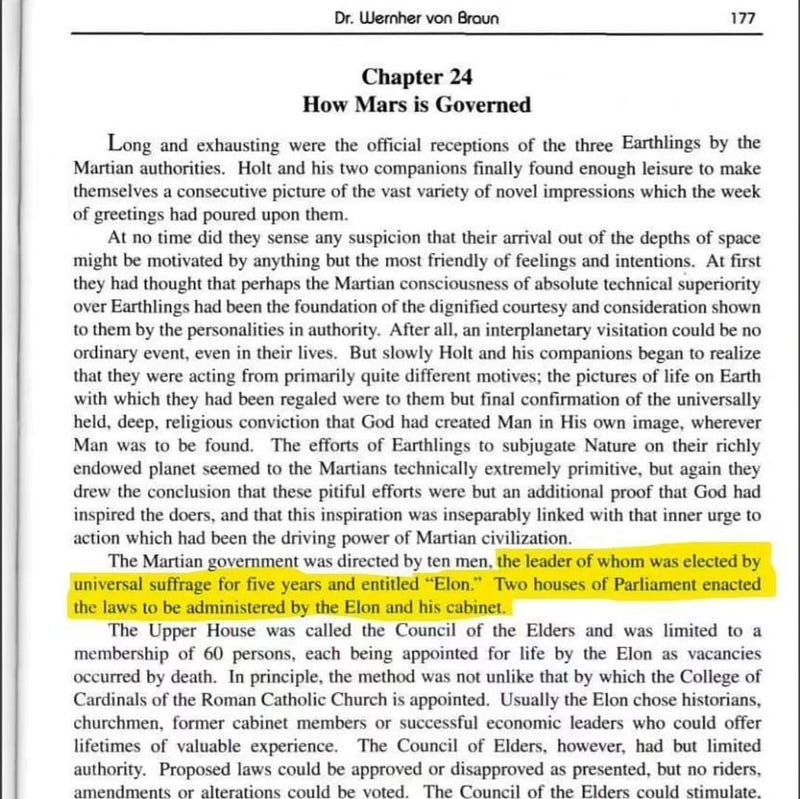The Unsettling Legacy of NASA: From Nazis to the Stars
Written on
Chapter 1: A Disquieting Background
When we think about NASA, our minds often drift to its remarkable achievements, such as the Moon landing, the Mars rovers, and the Hubble Space Telescope. Yet, beneath this surface of success lies a troubling narrative intertwined with one of the 20th century's darkest periods—the Nazi regime. This account not only touches on the ethical compromises made during the Cold War but also presents bizarre coincidences that provoke both intrigue and unease.
This unsettling history compels us to reconsider our understanding of space exploration and its historical roots.
Section 1.1: Operation Paperclip: The Recruitment of Controversial Talent
After World War II, the U.S. initiated Operation Paperclip, a covert program aimed at enlisting German scientists, engineers, and technicians. Among these recruits was Wernher von Braun, a former SS officer who played a vital role in Nazi Germany's rocket development. His contributions included the infamous V-2 rocket, a weapon that resulted in significant devastation during the war, much of it produced through forced labor from concentration camps.
Despite his questionable history, von Braun was brought to the U.S., eventually becoming a key player in the American space program. His expertise was critical in developing the Saturn V rocket, which facilitated Apollo 11's journey to the Moon. This partnership, however, raises profound ethical questions: Is scientific advancement worth the moral implications?
Section 1.2: The Mars Project and the Curious "Elon"
In 1952, von Braun penned a non-fiction work titled The Mars Project, which meticulously outlined a plan for a manned mission to Mars. Notably, he introduced a character referred to as “The Elon,” a detail that has since stirred interest in light of Elon Musk's aspirations to colonize Mars through SpaceX.

This strange coincidence has garnered renewed attention in recent years, particularly against the backdrop of Musk's ambitious plans. While one might be tempted to dismiss it as mere happenstance, it adds an eerie dimension to von Braun's already controversial legacy.
Chapter 2: The Alien Invasion Hoax and Project Blue Beam
Adding layers to this intriguing narrative, von Braun reportedly made chilling remarks about a fabricated alien invasion. According to some sources, he warned that governments might exploit the idea of an alien threat to justify escalated military spending and increased control over their citizens. This aligns with the conspiracy theory known as Project Blue Beam, which suggests that a staged alien invasion could be used to establish a global government.
While Project Blue Beam remains a conspiracy theory lacking concrete evidence, von Braun's alleged insights contribute a chilling layer to this discussion. It compels us to question the extremes to which governments, including the Nazis, have gone and might still go to maintain authority and manipulate public perception.
The first video, "Wernher von Braun: From Nazis to NASA," delves into the life of von Braun, exploring his controversial past and his pivotal role in the U.S. space program.
Section 2.1: A Historical and Ethical Examination
The early history of NASA exemplifies the complex relationship between scientific ambition and ethical compromise. The recruitment of former Nazis, such as von Braun, was rationalized by the urgent need to win the Space Race against the Soviet Union. However, this choice has cast a long shadow over the legacy of American space exploration.
As we continue to push the boundaries of space travel, it is crucial to reflect on these ethical dilemmas. How can we reconcile the achievements of scientists with their morally questionable histories? What lessons can we glean to ensure that our quest for knowledge does not come at the cost of our humanity?
The second video, "The Dark Side Of Space Race | The Saturn V Story," sheds light on the ethical implications and historical context surrounding the Saturn V rocket's development.
Conclusion
The story of NASA's origins, intricately linked to the dark history of the Nazi regime and the unsettling foresight of Wernher von Braun, serves as a poignant reminder of the ethical complexities that accompany scientific advancement. As we look to the future of space exploration, it is vital to remember these lessons and strive to achieve a balance between ambition and morality. The shadows of our past should guide us in building a future that honors both our thirst for knowledge and our commitment to ethical integrity.
